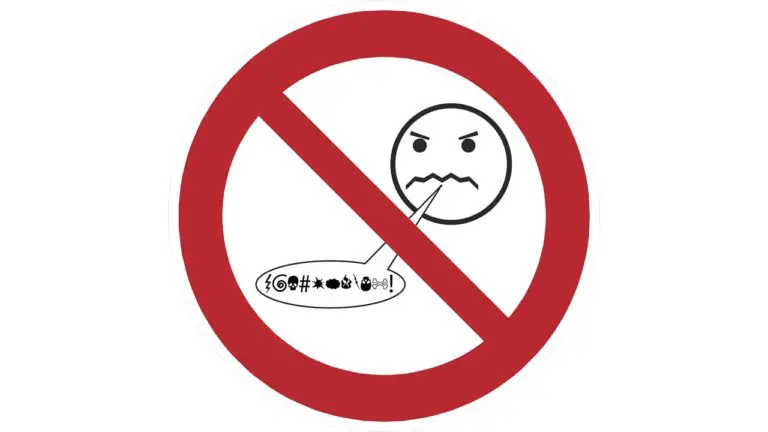If you’re getting into TEFL for the first time, you may have come across the topic of 120-hour TEFL certificatesand how valuable they are. They’re widely seen as the minimum requirement for getting employed. But if you get one, will it be enough to make your TEFL career a success? Or do you need more?

Generally, a 120-hour TEFL certificate is enough to train you in the basics of teaching English abroad, and allow you to find entry-level jobs in many countries. Most new TEFL teachers can succeed with one. Those wishing to advance their teaching skills or work in certain nations may find it insufficient.
The truth is, it depends. Your own preferences and aims when approaching TEFL will affect your decision, so there’s no one right answer for everyone.
To help you figure out whether it’s enough for you, in this article I’ll explain everything you need to know, in terms of country requirements, teaching skills, and job prospects.
But first we’ll look at what you get when you take a 120-hour TEFL course.
If you’re getting into TEFL and what to know all about the industry, courses, destinations and jobs, check out my Big Guide to Starting Out in TEFL: All you need to know.
What does a 120-hour TEFL course get you?
All accredited and reputable TEFL course providers make sure their 120-hour TEFL courses (both online and in-person) meet certain standards and provide the following things:
- At least 100 hours of academic theory in the form of coursework
- At least 6 hours of live teaching practice (practicum)
- Instruction by a qualified TEFL professional (usually with a DELTA certificate)
Academic theory comes in different forms, depending on the course provider, but will generally cover English grammar, pronunciation, teaching methods like behaviour management, and specific methodologies for teaching English as a Foreign Language.
You may also get some instruction on how to look for jobs, online tutoring, teaching adults vs. children, etc. Often, though, these are included as add-on courses, or part of a longer 150-hour or 170-hour program.
Live teaching (practicum) is where you get to put your teaching skills to the test under the watchful eye of a trained instructor who gives you feedback. It’s a great way of gaining confidence and gently stepping into the world of TEFL.
However, live teaching varies massively depending on which course provider you choose. The best ones are with real students. Too many course providers just have you running classes with your classmates, and you don’t get an authentic experience.
Teaching real students in your practicum makes a difference. That’s one of the reasons why I recommend International TEFL and TESOL Training as the best course provider out there. Head to my article Which TEFL Course Provider to Choose? Why my pick is ITTT to learn more.
Or, head straight to the ITTT page and get 15% off all courses. Full disclosure: I receive some compensation for sending you in their direction, although I could have chosen to do this with any of the major course providers. By following the link, you support this website. Thanks!
Most courses give you access to a tutor throughout the experience to help with questions and problems you have, mark your assignments, and give you feedback on any exams taken.
Will your TEFL course have an exam? Or will it be a series of written assignments? Providers do things differently, so head to my article Is There an Exam for TEFL Courses? What you need to pass to find out what you should expect.
Is a 120-hour TEFL Certificate enough to get a job?
The answer to this question is, on the whole, yes.
In fact, you can even get a TEFL job without a TEFL certificate, as long as you’re a native English speaker.
However, and this is a BIG however, you should avoid those jobs. They’re usually poorly paid and run by questionable companies. The exception is government-run programs like EPIK, JET and the Auxiliares de Conversación program.
I’ve written a whole article on whether a TEFL certificate guarantees you a job or not. Check it out here: Does a TEFL Certificate Get You an English Teaching Job? Meanwhile, I’ll go over the brief ideas here.

The 120-hour TEFL certificate is widely seen as the minimum qualification required for TEFL jobs at an entry level. If you’re planning to work in a language academy in Latin America, Asia, or certain European countries like Spain and Poland, it’s all you need.
But, as you can imagine, it isn’t enough for every TEFL job. There are two factors that mean you can’t get a certain job with a 120-hour certificate:
- Location. Middle Eastern countries like Qatar and the UAE, European nations like Sweden and France, and a small number of richer Asian countries, such as Singapore, typically require stronger qualifications. That’s not to say it’s impossible, it’s just much more difficult.
- Type of job: Most public and private school positions demand either a degree-level teaching license, a Masters in education, or at the very least, an advanced TEFL or CELTA. The same is true for universities, and high-paying language academies.
There will always be exceptions to these rules, and in many places in Latin America particularly, you can get private school and even public school positions with just a 120-hour certificate.
While you can’t get the best-paying jobs with this level of qualification, you can certainly get positions with decent salaries and working conditions.
To find out more about sketchy companies in the TEFL industry, read my post: Is TEFL Legit? Guide to trustworthy certificates and jobs. Learn the difference between TEFL and CELTA here: TEFL vs. CELTA: What’s the difference? And find out how much you can earn in each country here: How Much Do TEFL & TESL Teachers Make?
Is a 120-hour TEFL certificate enough to become a good teacher?
This is somewhat subjective. If you ask me, I would say “probably not”, with the caveat that the quality of the course content, as well as your natural skills as a teacher, play a big part.
The instruction provided online or in-person is basic. While 120-hours may seem like a long time, it’s very little in the grand scheme of things. The in-person courses usually take four weeks, and in that time you can’t possibly learn everything you need to be a good teacher.
And from my experience of TEFL courses, quite a lot of the instruction is just getting you up to speed with English grammar, along with a few generic strategies for behaviour management and elicitation.

Compared to a degree-level qualification (like the PGCE in the UK, which I have also completed), these courses barely scratch the surface.
But fear not. You don’t need to be an amazing teacher right from the start. Practice and experience are the best ways to improve, combined with continued training and mentoring throughout your career.
In fact, this website is about helping you get better as a TEFL teacher, providing tips, guides and ideas for making your lessons great.
Is a 120-hour TEFL certificate enough to compensate for not having a bachelor’s degree (in any subject)?
The answer to whether a 120-hour TEFL certificate can make up for a lack of bachelor’s degree depends on where you’re intending to work as a TEFL teacher.
In most places, the answer is no. Typically, bachelor’s degrees are required for getting a visa. They also help employers filter applicants, as degrees are regarded as a sign of academic rigour (although they’re certainly no guarantee!).
If the country you want to work in requires a bachelor’s degree to get a working visa, a TEFL certificate of any kind can’t be used instead. You’re out of luck.
However, in countries with looser standards (mostly Latin America and Africa), employers may ask for a bachelor’s degree OR a 120-hour TEFL certificate. If you have one of the two, you can still get employed.
To find out more about whether you need a degree to be a TEFL teacher, check out my article on the subject: Do You Need a Degree to Work as a TEFL Teacher?
Should you pay extra and get an advanced certificate or CELTA?
As we saw earlier, a 120-hour TEFL certificate is enough to get you most entry-level jobs around the world. Once you’ve got it, you can start job hunting and dreaming of a life abroad.
But you may be wondering if it’s a better idea to pay more and get a beefier qualification?
For most people, I’d say it isn’t worth it. It’ll take more of your time, and eat up your budget, without giving enough back to make it worthwhile in the short term. However, if you’re into TEFL for the long haul, it’s worth considering.
IMPORTANT: the advanced TEFL (168+ hour) is NOT the same as the CELTA. While they’re both advertised as Level 5 qualifications, the CELTA is a much more valuable certificate. It’s also a lot more expensive.
A CELTA will get you slightly higher-paid and more desirable jobs. However, don’t expect it to make a massive difference, especially if you don’t have any experience in TEFL. Over the course of a year or two, the extra you spend is unlikely to pay itself back.
However, in the long term, you’ll be able to combine the qualification’s prestige with your experience and climb the ladder, even getting into competitive private school positions. The instruction in the CELTA will also help you become a much better teacher.

An advanced TEFL (168+ hours) won’t make much of a difference. Sure, there are a few jobs out there that demand 170 hours over a 120-hour course, but the difference in pay isn’t that huge. And the extra hours of instruction won’t really make you that much better as a teacher.
However, once you’ve got your 120-hour certificate, you can later upgrade. This way you don’t have to pay so much initially, and you can see if TEFL is going to work for you before committing to more study time and expense.
If you’re still unsure about which TEFL certificate you should get, I highly recommend you read my detailed article on the subject: What is the Best TEFL Certificate? Guide to choosing right. And if you’re wondering if TEFL is viable in the long term, read my post: Can TEFL Be a Long Term Career?
Conclusion
If you’re starting out in TEFL and aren’t sure how long you’ll be doing it for, or have already decided it’s just for a year or two, a 120-hour TEFL certificate is all you need.
You’ll be restricted slightly in which countries you can teach in, but as long as you’re happy with Latin America, Asia, or certain European countries (Spain in particular), you’ll find jobs with relative ease.

However, if you plan on making TEFL a long-term career, a 120-hour TEFL certificate will be enough to get you started, but will limit you further down the line.
You could go in hard straight away and get a CELTA right now. Or, keep your money in the bank, get a year or two of experience and savings under your belt, then make the step up.
Whatever you decide, choosing the right course provider is critical. Cost, quality, and practical training are all factors to consider, as well as deciding whether an in-person, online or hybrid course is best for you.
I strongly recommend International TEFL and TESOL Training. They offer a variety of courses with a focus on practical experience in front of real students. Click this link to go to their site and get 15% off all courses and in doing so help out this website. Or, read my full review here: Which TEFL Course Provider to Choose? Why my pick is ITTT.










